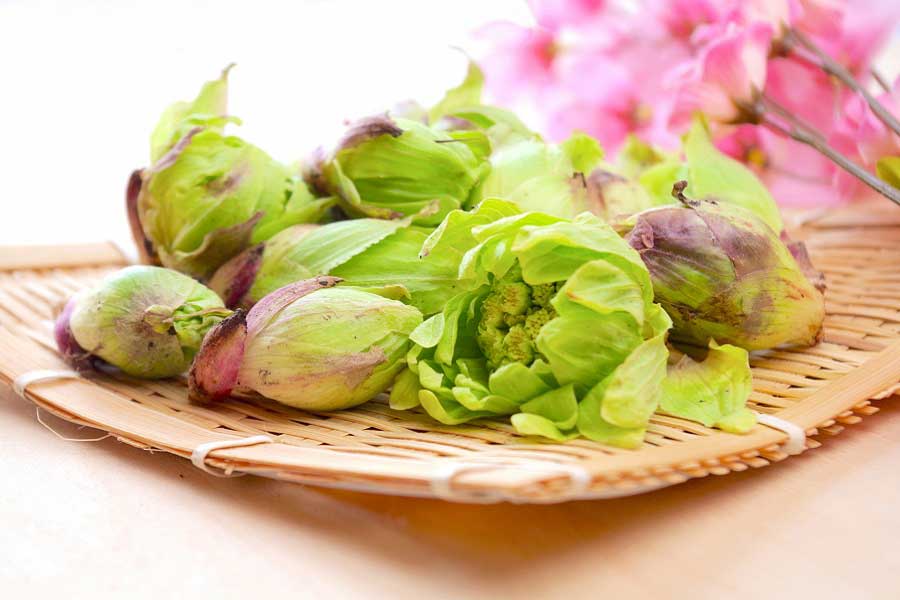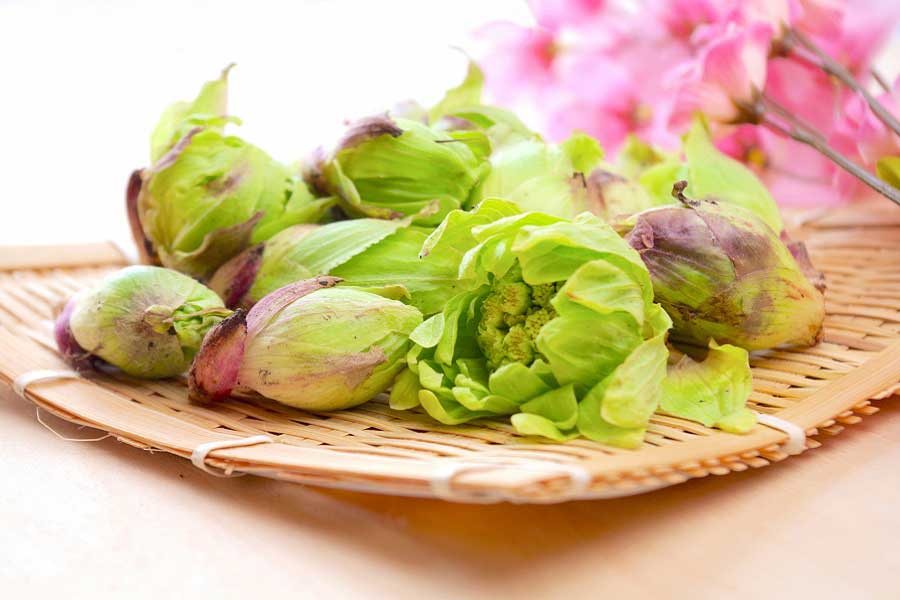
Fiddlehead Fury: Is the Bitter Bite of Petasin Actually Good for You? (Cancer Crusher?)
Spring whispers its arrival with a symphony of sights, smells, and tastes. In Japan, one of the most anticipated tastes is the arrival of fukinotou, a tightly furled fiddlehead fern prized for its unique bitterness and earthy aroma. But beneath that bold flavor lurks a powerful compound called petacin, and many wonder: Is petacin, the bitter ingredient in fukinotou, good for your health? (Is it effective against cancer?)
Unpacking the Power of Petasin
Petasin isn’t a fukinotou exclusive. It’s found throughout the celery family, and research suggests it packs a surprising punch when it comes to health benefits. Here’s a taste of what petacin might be able to do:
- Taming the Flames of Inflammation: Chronic inflammation is linked to a whole host of health woes, from arthritis to eczema. Petasin, however, might be a natural firefighter, potentially suppressing the production of inflammatory compounds.
- Quenching Free Radical Fires: Free radicals are like tiny vandals in the body, wreaking havoc on cells and contributing to aging and diseases like cancer. Petasin’s antioxidant properties might help neutralize these free radicals, protecting your cells from damage.
- Getting the Blood Flowing: Sluggish circulation can lead to a number of problems, including heart disease. Petasin might have blood-thinning properties, potentially helping to keep things flowing smoothly.
- A Multitasking Marvel: The list doesn’t stop there. Petasin also shows promise for its antibacterial, antiviral, and pain-relieving properties.
The Cancer Connection: Can Petasin Be a Weapon?
This is where things get interesting. Early research suggests that petacin might have some serious potential in the fight against cancer. Studies indicate that it may hinder the growth of cancer cells and even trigger apoptosis, a fancy term for programmed cell death in cancer cells.
Is petacin, the bitter ingredient in fukinotou, effective against cancer? The answer, for now, is a cautious maybe. While the research is promising, it’s still in its early stages. More studies, particularly clinical trials, are needed to see if petacin can truly be a weapon in the fight against cancer.
Enjoying Fikinotou’s Goodness (Without the Bitterness Overload!)
So, you’re curious about trying fukinotou? Here are a few tips:
- Embrace the Season: Fikinotou are a springtime treat, so keep an eye out for them at farmers’ markets or specialty stores.
- Tame the Tannins: The bitterness comes from tannins, so blanching your fikinotou for a minute or two can help mellow the flavor.
- Culinary Creativity: Fikinotou are incredibly versatile. Try them tempura-fried for a crispy delight, tossed in a stir-fry for an earthy punch, or simply enjoyed as a side dish with a drizzle of sesame oil and a sprinkle of salt.
A Word on Moderation
While fikinotou and petacin seem to offer a bounty of health benefits, remember, moderation is key. Overdoing it on fikinotou can lead to stomach upset or liver problems.
Fakin’ a Final Verdict
Is petacin, the bitter ingredient in fukinotou, good for your health? Absolutely! From its anti-inflammatory properties to its potential role in cancer prevention, petacin seems to be a wellness warrior in disguise. Is it effective against cancer? The jury’s still out, but the early research is exciting.
So, the next time you see fukinotou at the market, don’t be afraid of the bitter bite. Embrace it! You might be giving your body a powerful dose of natural goodness. Just remember, enjoy fikinotou in moderation and consult with your doctor if you have any concerns.



コメント